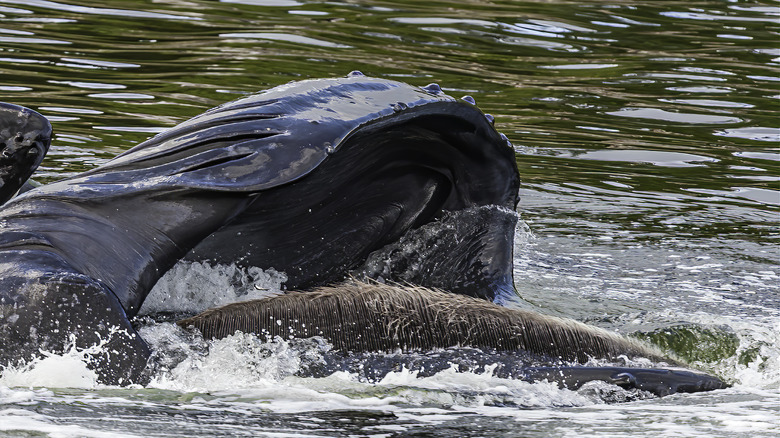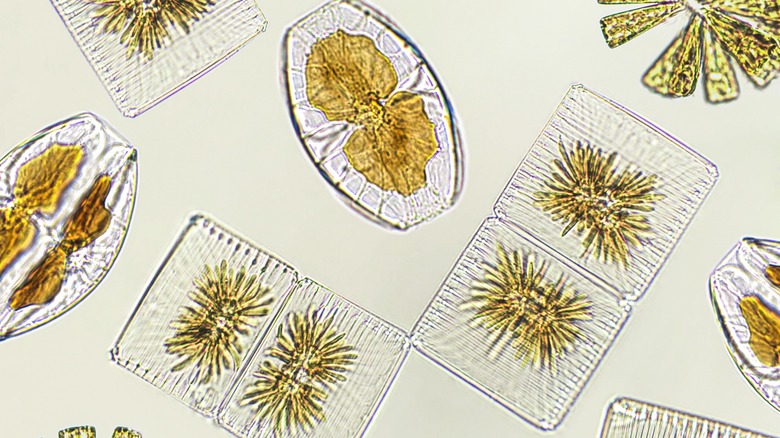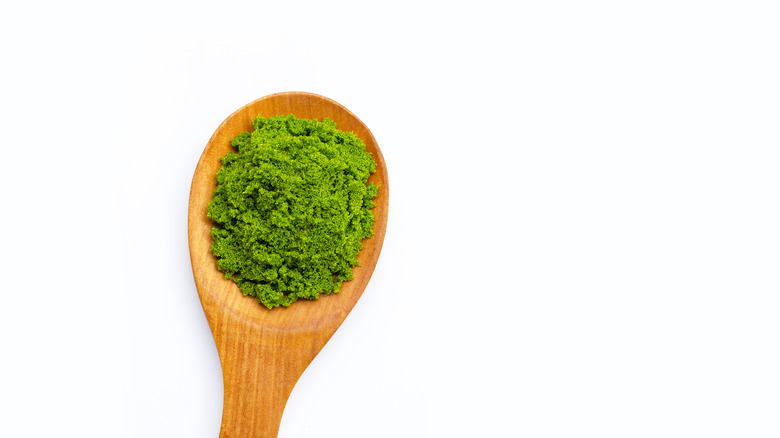Why Vegans Should Be Wary Before Trying Plankton
We may receive a commission on purchases made from links.
Plankton are one of the most abundant types of life on the planet. Microscopic creatures that fill the world's oceans and are defined by their inability to propel themselves against the ocean's currents, plankton are a crucial food source for creatures like bivalves and whales, which will literally consume them by the millions (up to 16 tons daily!).
More recently, human beings have started eating plankton as a vegan superfood. It's not a huge stretch, as other organisms already eating plankton en masse — why can't humans? It's definitely a product on the rise, as you can buy plankton powder on Amazon, and there are even chefs who cook with it now.
The problem for vegans is you can't simply say, "Plankton is vegan-friendly!" and leave it at that. Some plankton certainly is, but other types are literally tiny animals. Vegans probably want to avoid eating those, since animals are by definition not vegan-friendly.
There are all sorts of plankton, and not all of them are vegan
As noted, there are two main types of plankton: zooplankton and phytoplankton. As the name implies, phytoplankton are tiny plants, while zooplankton are animals. A creature like a whale will cheerfully eat both, but it should be pretty obvious why only one of those two things is vegan. Phytoplankton are typically a source of food for zooplankton.
There are actually even more types of plankton to be aware of than these two. Mycoplankton are fungi and fungi like organisms, essentially the world's tiniest mushrooms. Bacterioplankton are bacteria, while virioplankton are viruses (yes, even plankton have viruses). Mycoplankton, just like other fungi, would clearly be vegan, although things get into interesting philosophical territory with the latter two categories.
Though people think of plankton as marine organisms — "creatures" isn't really appropriate for the reasons outlined above — not all of them live in water. Aeroplankton can be lifted into the sky from dust storms, marine spray, or just general weather conditions. And due to how light they are, they often travel thousands of miles before eventually drifting back to Earth. But when we're talking about edible plankton, we're mostly talking about the marine kind.
Wait, should we be eating plankton?
It may seem odd to consume what is essentially whale food, but there are real potential health benefits to consuming plankton. Plankton are the source of omega fatty acids in fish (which don't actually produce them on their own), so there's some solid science that they would be a way for humans to get those omega-3's without having to go through the piscine kingdom. For vegans who want the benefits of fish oil but are super concerned about consuming any animal-related product, eating phytoplankton seems a natural solution.
There's also strong evidence plankton are an untapped sustainable food source. Food production has long been a problem in many regions, and with climate change on the rise, crop production is going to be heavily affected in the coming decades. We don't really have tons of cropland to grow additional protein-rich foods, and potable water sources are often an issue. Plankton, though, can be grown on non-arable land using non-potable water, and are wildly rich in proteins. Along with insects, they seem like one of the best possible solutions to growing world hunger.


